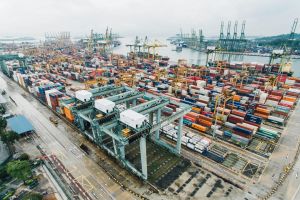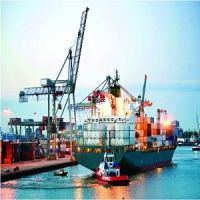How Fintech Solutions Are Empowering Small Exporters Manage Cash Flow?

Since the global pandemic of Covid-19 hit the world economy, the global traders have gone into deep thinking about adopting a more feasible, flexible & needy version of finance arrangements for uninterrupted business activities. There would be nothing wrong if we conclude that the fast-spreading pandemic is the real reason behind the increasing number of fintech startups in the market.
More & more international trade businesses are adopting fintechs to ensure their continued growth & revenue that they have been putting in the market but the genuine or say the most common purpose behind the rise of fintech is none other than empowering Micro, Small, and Medium Enterprises (MSMEs) in having a smooth, secure & faster access to the most suitable & trending trade finance instruments at a required time.
MSMEs are one of the worst affected segments when it comes to applying for trade finance services, especially in the first wave of the pandemic as it dramatically influenced world economic activities, supply chain, etc.
According to the MSMEs annual report 2020-21, currently, 36% of the SMEs are operating in the trade sectors while 33% belong to other service categories and 31% in manufacturing. Despite their phenomenal contribution to the country’s economic development, there is a desperate requirement of adopting modern technologies for MSMEs including artificial intelligence, machine learning, big data, blockchain, and application programming interfaces (APIs). These technologies help MSMEs to automate their business operations and participate in the global market.
But why do they need to keep themselves updated?
Well. Here's the thing. In today’s market, small & medium exporters find it hard or a little tricky to expand their foreign market only by developing new products. The reality is, that a substantial amount is required to keep the manufacturing & shipping operations running. But due to smaller balance sheets or uncertainty towards a continual revenue, the proposals of these SMEs often get rejected.
Here, fintech startups have emerged as a rescue to aid businesses to get proper funds at the right time and securing their trade financing through various instruments. As per the Asian Development Bank (ADB) study, the rejection rate for trade finance applications was quite high in 2020, along with the gap between demand & supply at $1.7tn – a 15% rise compared to the earlier estimate of $1.5tn in 2018.
SMEs often face various roadblocks when it comes to funding their business activity. The prominent reason is that the banks are becoming rigid and following strict banking policies towards granting loans & finance. UAE banks are currently following attending guidelines and avoiding lesser-trustworthy/known customers. Many leading financial institutions are adopting a risk-averse approach toward trade financing and it is expected to be seen in the upcoming days also. It is going to tremendously hurt MSMEs who are looking to get finance for their international trade transactions.
Other than smaller balance sheets, smaller exporters often end up being left bare-handed due to their incapability of providing collateral. Additionally, they don’t have a detailed record of their industry trends, know-your-customer (KYC), or risk-management strategies that are vast to investors.
Here, fintechs help them bridge this gap and enable SMEs to get access to suitable import-export financing to ensure the liquidity they need to carry on working capital management. Digital assistance empowers them to trade freely across borders.
Here’s how fintechs are supporting worldwide exporters
Big Data Provides Big Picture
Since every company/organization runs on its unique risk adaptability, fintechs strive for a more customized & appropriate approach that fits all the lending or funding requirements of SMEs. Here, big data enables them to determine & assess global SMEs' financing risks. How? Digital trade finance utilizes data to access the risks of inadequate merchants. For example, they provide a comprehensive view of an exporter’s risk profile by evaluating several data points, such as credit insurance companies, etc. It organizes their workflow and generates quality information needed to determine the genuine buyer or seller.Related Read: HSBC Collaborates With HKTVmall To Get Digital Trade Finance To Merchants
How Does It Work?
By applying for digital trade services, the global exporters can get paid earlier for their generated invoices. It means, that now they don’t have to wait for 120 days or even more to make the buyer pay. They can approach banks and get a Letter of Credit, Bank Guarantee, or other types of export financing issued.Plus, leveraging big data already provides them with a suitable approach to figuring out organizational risks for SMEs. They can determine the credibility of the buyer and hence guarantee an on-time payment.
Other Benefits:
1. Fintech solutions help SMEs in managing their working capital with a faster & reliable grant of funds as soon as the credibility is established.
2. Additionally, it eliminates payment & supply risks for both importers & exporters.
To Sum Up
Now there is no more need to say how digital trade finance or fintech solutions are empowering SMEs to get easier & on-time access to finance. It removes their credit risk, manages cash flow, and many more.






